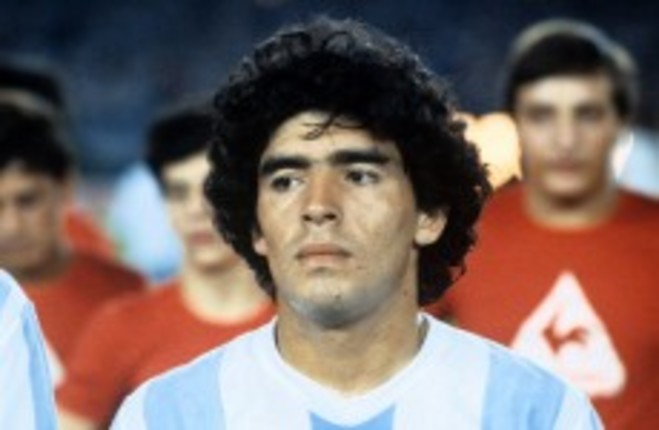1. ‘Washington Post contributor Erik Wemple described Deadspin‘s investigation this way: “Deadspin never got Tuiasosopo [the confessed perpetrator of the hoax] on the line to hear his side of the story. Nor did it get Te’o or his father or Notre Dame. It also wrote a media story without consulting all the various media outlets that fell for the hoax.”
‘Beyond reporting on the hoax itself, Deadspin also included quotes from an unnamed source in its original story that strongly implied Te’o’s own involvement in the ruse.
Since the story broke, both Te’o and Tuiasosopo have come forward and said that Te’o had absolutely nothing to do with the hoax.
‘In light of comments that have been made by Deadspin Editor-In-Chief Tommy Craggs about established news outlets such as The Boston Globe (calling the paper “a craven, slipshod outfit”) and ESPN (calling the network “a terrible company full of craven morons”), does Deadspin have standing to level such criticism given its own standards of journalism?’
The American Sports Journalism Center comes to face with Tommy Craggs, the man who first published the Manti Te’o hoax story.
2. ‘Four days before Oscar Pistorius shot her in the elbow, hip and head through the bathroom door at his home in Pretoria, Reeva Steenkamp tweeted a message about violence against women in South Africa. “I woke up in a happy safe home this morning,” the 29-year-old wrote. “Not everyone did. Speak out against the rape of individuals.”
‘As Valentine’s Day broke with the news that the 26-year-old who became a global icon in 2012 by running in both the Paralympics and the Olympics had killed his girlfriend, Steenkamp’s words–repeated around the world–only added to the sense of improbability. I checked Steenkamp’s words on Twitter. Then I found myself scrolling back through her life in 140-character snippets.
Time Magazine on the Valentine’s Day shooting in Pretoria.
3. ‘Flags in hand, a group of wheezing scribes of questionable fitness are “crabbing” their way left and right along the sideline of an indoor football pitch at St George’s Park, opulent home to the National Football Centre in Burton-on-Trent. As the verb suggests, the exercise involves shuttling sideways at speed in order to keep up with and constantly monitor play, while simultaneously providing a moving target for any projectiles that might be raining down from the crowd behind. The ability to “crab” is an essential skill for any match official and one this reporter has since adopted to maximise efficiency while shopping in supermarkets that are long of aisle.
‘On the whistle of former Premier League referee Dermot Gallagher we come to an abrupt halt, at which point Roger Vaughan, the FA’s National Referee Manager, shows a card to signal a pre-arranged hypothetical situation and invites us to flag accordingly. Confusion and uncertainty reigns.
‘Our flags go up, some authoritatively, others tentatively and almost all incorrectly. Gallagher is appalled. “It’s not so easy, is it?” he barks, scanning the motley bunch standing sheepishly before him showcasing the surprising large number of mistakes it is apparently possible to make while signalling for offside.’
Barry Glendenning of The Guardian learns how to become a referee. And discovers it really isn’t that easy.
4. ‘By now going so public with his frustrations, Benítez seems to have deliberately taken himself to the point of no return with Chelsea and their supporters.
Can he really now stand in the Stamford Bridge dugout on Saturday having accused his bosses of a “massive mistake”, confirmed that he is leaving at the end of the season and been so critical of the most vocal sections of the club’s own fans?
‘Most will argue that this all reflects rather worse on Chelsea than Benítez. That might be true, but it should be pointed out that Benítez walked into this relationship with his eyes wide open and accepted his title.
‘He must now hope that future potential employers will accept the characterisation of Chelsea as an impossible place to work, rather than look at his personal history of acrimonious exits. For Chelsea, the search for another manager simply escalates.’
Jeremy Wilson of The Daily Telegraph on the soon-to-be former Chelsea manager.
5. ‘Watching Maradona run is one of the signal experiences in the history of spectator sports, so I want to try to do this justice: give him the ball, and the pitch would move to help him. I am absolutely convinced that he caused changes to take place in the surrounding terrain at a topographic level. I mean, suddenly the defenders were running uphill.
‘Sections of the field reassembled themselves. Some kind of deep-earth conveyor belt hauled him forward and flung everyone else off-balance. You see this in some of his early goals with Argentinos Juniors; you can read it in the famous picture of six Belgians trying to mark him in the 1982 World Cup.
‘He hadn’t fully arrived as a player in his mid-teens, obviously, but there were glimpses. Everyone else on the pitch looked like they were working while he played.’
Brian Phillips, writing for Grantland, on Maradona ‘then’ compared to Maradona ‘now.’

